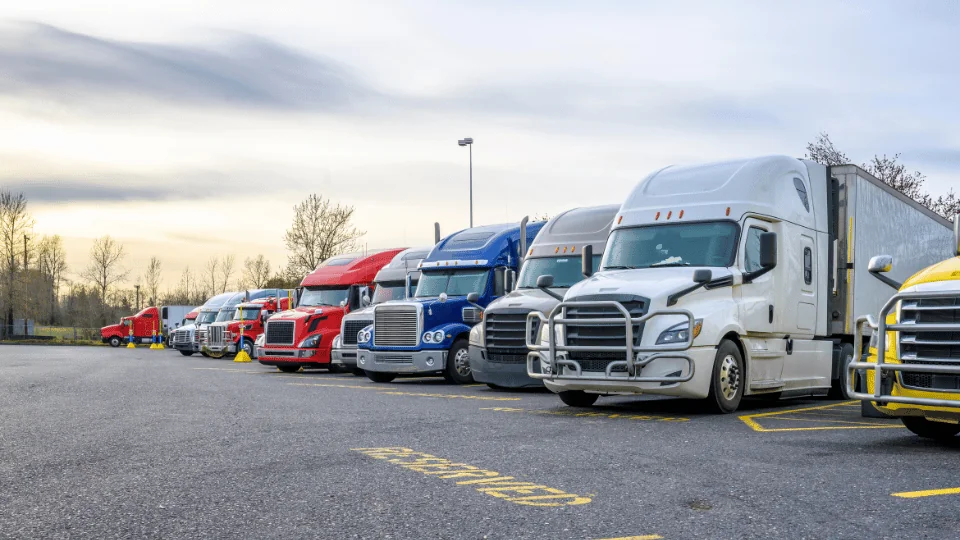Why is Adequate Truck Parking So Important in the Logistics Industry?
On March 5th, 2009, New York truck driver Jason Rivenburg was on his way to South Carolina for a delivery from Virginia. However, the delivery location was not open yet, and he had arrived too early to unload.
Rivenburg couldn’t find a truck stop or rest area nearby. He ended up parking 12 miles from his delivery location at an abandoned gas station to stay for the night. He had heard from friends that the area was safe to park and didn’t have anything to worry about.
He would never make the delivery.
Rivenburg was attacked and killed in his sleep by a robber searching for money. The robber discovered only $7 in change, which Rivenburg had received from a diner where the robber’s mother worked. The body was found a few days later, and the robber was arrested, but the damage had already been done. Rivenburg left behind a wife, a young son, and twins who were born just one week after his death.
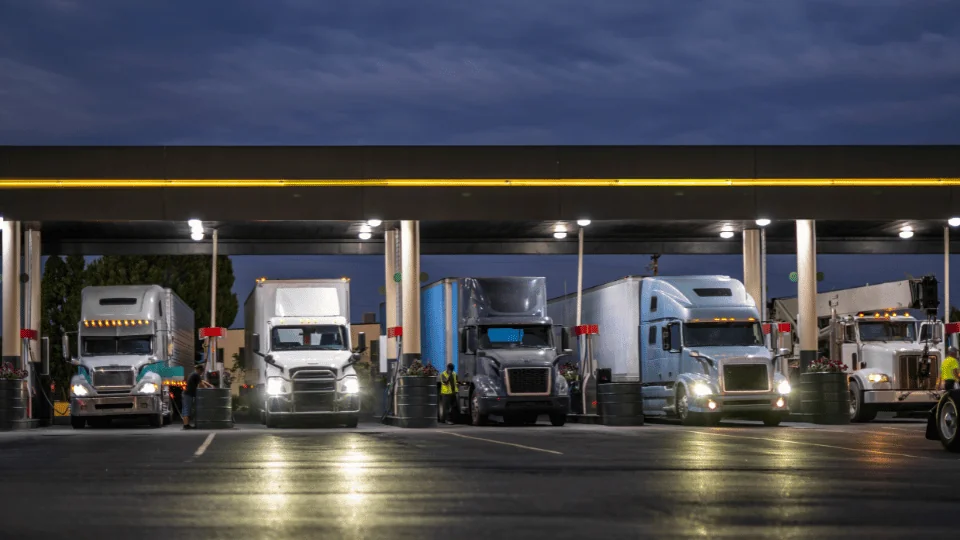
While stories like these remind us of the dangers of long-haul trucking in general, they also demonstrate an issue that has plagued truckers for decades now: limited parking for semi-trucks. Having places to park semi-trucks is more than having a place to load and unload deliveries; it’s also about finding places for truck drivers to rest after driving long distances.
Long-haul driving is known for its long hours and little rest, but thanks to new laws and legislation, trucking companies and the Federal Motor Carrier Safety Administration (FMCSA) must enforce regular rest periods for drivers called Hours of Service (HOS).
However, drivers are avoiding or unable to complete their HOS requirements due to a lack of parking. This issue is also affecting operations at distribution centers and warehouses, as there aren’t enough parking spaces in these facilities to accommodate everyone.
With all the commotion from trucking companies and the federal government, it’s evident that the lack of adequate truck parking is an essential issue for the entire logistics industry. But why is having good parking areas for trucks so important?
1. Drivers may just continue driving.
If a driver cannot find a suitable parking spot or rest area, they may continue driving, thinking they can resist sleep until finishing their current job. This attitude infringes on the FMCSA’s HOS regulations, which mandate that drivers must take a specified number of hours for driving, followed by a required rest period. More importantly, it also raises the likelihood of a crash or accident due to driver fatigue.
2. Drivers may park in unsafe locations.
If a driver can’t find a good parking place and doesn’t wish to continue driving, they may end up stopping in a hazardous area. These include areas such as the shoulder of a road, near exit ramps, or in desolate, dark, vacant areas. This not only violates trespassing rules and increases the risks of accidents, but it also makes drivers vulnerable to vandalism, theft, and violence against them.
3. Deliveries and pickups may be delayed.
A driver who can’t find a place to park for unloading and loading trailers will end up falling behind schedule and either miss or delay deliveries. They may also miss deliveries or pickups because of their HOS-required rest periods, which can also be delayed because of unavailable parking for trucks.
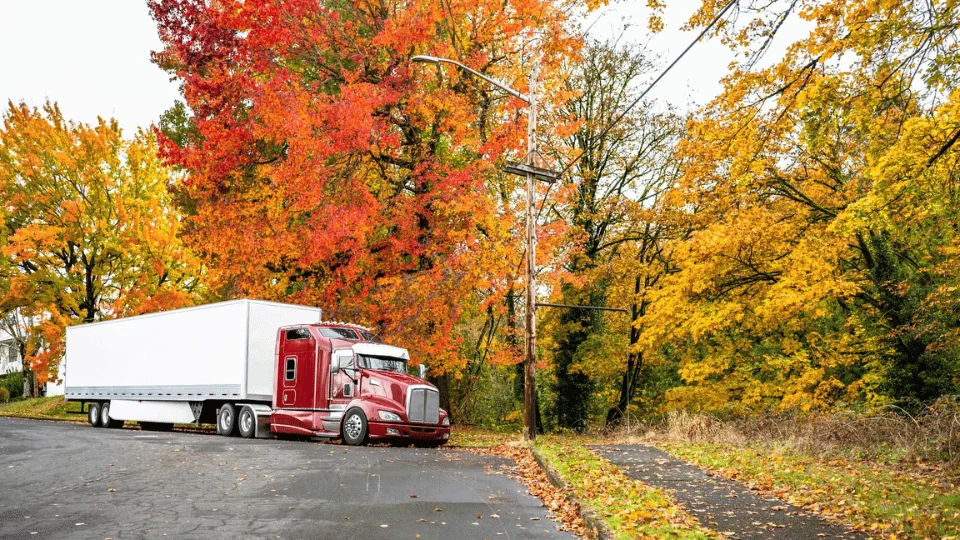
4. There may be long lines at distribution centers.
If a driver arrives at a warehouse or distribution center, they may have to wait in long lines because of limited parking spaces. Most drivers leave their trucks idle while waiting, which wastes fuel. The long lines also affect operational efficiency, as a lack of parking spaces at distribution centers means fewer trucks leaving for deliveries and slow distribution times.
5. Drivers may just choose to park farther away.
If a driver can’t find a parking space while making a delivery, then they may just park farther away in an appropriate area. This increases the amount of empty miles driven and increases fuel usage. It also forces the customer to receive their shipment in a further location, meaning they have to use up additional resources to get their load to their destination, dissatisfying them.
6. Finding parking can be stressful for truck drivers.
Searching for an appropriate parking spot can cause significant anxiety and frustration for drivers, adding to their overall stress. This pressure, combined with their other duties and responsibilities, negatively impacts their job satisfaction and can decrease their physical and mental well-being. Consequently, this contributes to driver shortages, a problem intensified by the high average age of truck drivers.
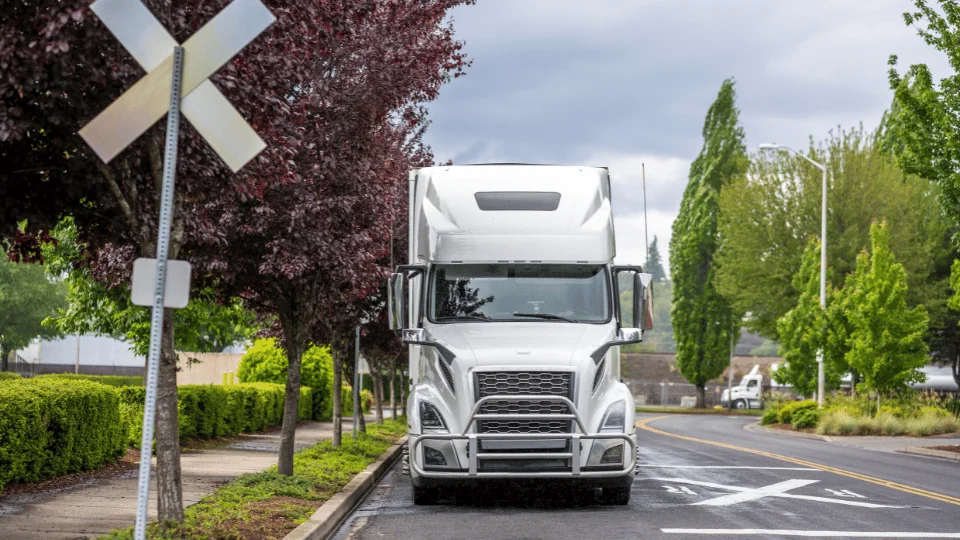
Truck parking is a significant concern for the safety and health of drivers. Without proper rest and secure parking during off-hours, drivers cannot safely make deliveries or pickups, nor can they effectively fulfill their responsibilities. The shortage of available truck parking has adversely affected the logistics industry, making it essential to find viable solutions to the issue.
Logistics professionals have concentrated on technology to improve operations. Trucking companies have developed various new parking apps and software to help drivers find available parking spaces, including Truck Parking Club, Parkunload, and DAT One. These apps use the latest technology, like Bluetooth, AI, and machine learning, to detect open parking spots and notify drivers. Though the adoption of truck parking apps by drivers has been slow, they are valuable tools for those who use them.
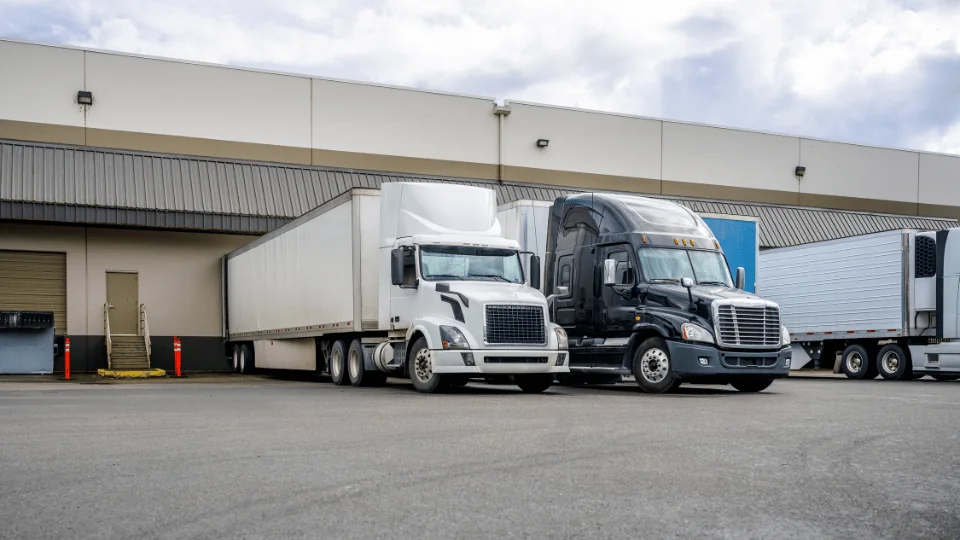
Another solution has been to increase government awareness of truck parking problems. The US DOT has implemented several initiatives to push legislation forward to make truck parking a national priority. For example, the National Coalition on Truck Parking was established back in 2015 by the DOT and several stakeholders to create initiatives to address safe parking. The House Transportation Committee also approved $755 million in 2023 to expand truck parking nationally.
However, one of the most significant achievements in government lobbying for safe truck parking, and the one that got the ball rolling, was the creation of Jason’s Law, which was established by Jason Rivenburg’s wife and other family members. Through the law, various programs were created to bring national attention to truck parking, like the Jason’s Law Truck Parking Survey.
This survey requires the U.S. DOT to evaluate each state’s ability to provide sufficient truck parking and rest areas. This survey is conducted in collaboration with representatives from state motor carriers. Based on the survey results, the U.S. DOT develops metrics to assess the effectiveness of state parking facilities and identifies areas for improvement.

Thanks to the government’s ongoing efforts to address the truck parking issue, along with the transportation industry’s encouragement to use truck parking apps, progress is being made. However, we still have a long way to go before truck parking becomes a non-issue. Some logistics experts even doubt that this problem will ever be fully resolved, as many states lack the infrastructure and capacity to expand truck parking areas and zones.
Nevertheless, everyone in the logistics industry agrees that adequate truck parking is more crucial than one might initially think. The safety and well-being of long-haul truckers depend on having secure areas to sleep, rest, and load or unload their vehicles. Additionally, the lack of parking impacts logistics operations and increases carrier expenses, affecting all of the transportation and logistics industries.
While it may be challenging to implement, increasing the number of parking spots for trucks is essential to prevent truckers like Jason Rivenburg from facing tragic outcomes while performing their jobs. By advocating for truck parking improvements, we are making trucking a safer, better profession for all drivers.

